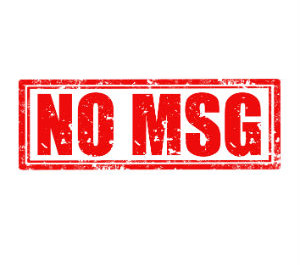MSG in Restaurant Foods: Health Concerns Associated With MSG
Mono-sodium Glutamate, also known as MSG is classified by the FDA as a flavoring. MSG is listed on the GRAS list, which generally means that it is on a list of foods that are deemed safe to consume, so there is no limit to the amount that can be added to your food. Most restaurants use MSG to make the food taste better, so you will eat more of it. MSG causes hunger, which is why when most people order food from a Chinese restaurant, they are hungry an hour after eating.
What Is It?
MSG is in almost any type of processed food, whether it is organic or not, which means when you order from an organic restaurant, there is a chance MSG could be added to the meal. It is extremely important to read the labels on all foods and if you aren’t sure if the restaurant you are eating at uses MSG, ask them; most will be honest if they are using it.
Why should you be concerned about MSG? There are numerous health conditions that you may experience after eating foods that have been prepared with MSG. Some of the most common health problems related to the consumption of MSG include:
- Racing heart
- Depression,
- Irregular heartbeat or blood pressure
- Mood changes
- Chronic fatigue syndrome
- Hyperactivity
- Irritable bowel
- Neurological disorders
- Behavioral problems
- Hypoglycemia
- Obesity
Find It In Another Term
MSG is often disguised as another form of seasoning, so if you are eating at a restaurant and you aren’t sure about the seasonings used, make sure you ask the chef. “Natural flavorings” is one of the most common terms used when MSG has been used in the food preparation.







